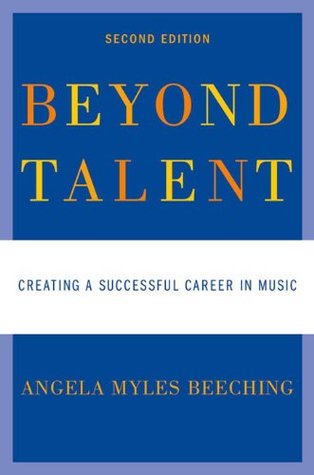Kindle Notes & Highlights
Read between
October 21 - November 2, 2019
Matt Haimovitz garnered national media attention several years ago
“If you only interact with people in your network when you want something (a job, leads for your business, help getting out of a jam) you will destroy it faster than you can build it.
“the psychology of our interactions with people.” He recommends “thinking about how our interactions can help us get what we want from people, by working to give them what they want.”
Inner circle: approximately five to ten people. These are your closest mentors, trusted colleagues, and friends, the people you turn to for career advice. This is your “personal advisory board.” • Intermediate circle: who else do you know? Include your colleagues, former teachers, classmates, family friends, neighbors, and maybe your doctor, dentist, chiropractor, accountant, mechanic, fellow book club members, or basketball buddies. Be as complete as possible. • Outermost circle: these are more casual acquaintances, people who have “friended” you on a social networking site, those who may
...more
By calling her contacts, reconnecting, finding out what old friends are up to, and telling people she’s looking for more opportunities, Sarah will not only boost her morale, but also expand her options.
using these sites is not enough: musicians need to have their own mailing list system.
It is part of the musician’s job to build a fan base.
Your approach needs to fit the situation. If you’ve just met someone of influence or who has substantial experience and perspective in the profession, it is not appropriate to ask right away for an audition, lesson, performance opportunity, or job. It’s like asking someone to marry you on a first date: it’s not advisable. Networking is about developing relationships over time, not about quickie, one-time transactions.
Turn your cell phone off during all meetings, rehearsals, concerts, and social gatherings.
How to Work a Room
Use conversation openers. Ask open-ended questions, such as “What do you think about the…. [performance, speech, workshop]?”
Approach groups of three or more. Do not interrupt a twosome—it may be a very personal conversation.
Reintroduce yourself to people you have met before. Start with a familiar face. If you cannot remember a name, simply say, “Hi, I know we’ve met before, I’m Jane Smith, [shake their hand] and you are …?”
Follow through. If you say you will call, send an article, or leave a message for someone, do so. Your promise and your word need to be good. It’s the mark of a professional.
Popular author and career counselor Barbara Sher, who wrote Wishcraft: How to Get What You Really Want, and Live the Life You Love, originated the success
“Joining a band with someone is a combination of marrying them, fighting alongside them in a war, and being trapped in an elevator with them.
young performers believe their “job” as musicians is to practice and perform. Period. Some mistakenly may believe that once they become accomplished professionals, they will be protected from the crass world of commerce and the everyday details of handling finances, logistics, and publicity. They may imagine that the details of managing their career will be handled by their agent—or, perhaps, by a fairy godmother!
Elvis Costello famously compared writing about music to dancing about architecture.
excellent presentations of arts consultant Deborah Obalil.
Back then, careers were built and balanced on a “three-legged stool” of recordings, radio, and touring.
The New York Times reports that in the early 1960s, classical music still accounted for 33 percent of all record sales in the United States. Today, according to the Recording Industry Association
of America, classical and jazz record sales each account for about 3 percent of all sales.
Mark Worgaftik says that it was when he started recording himself regularly, as a grad student at Juilliard, that he really started to make substantial improvements in his playing.
Recording yourself helps you educate your ear.
In general, if you have not “nailed” a passage, section, or movement after three takes, you most likely will not get it in that session.
The reason physical CDs persist is that fans still want to purchase something tangible, a souvenir of sorts, when they attend live concerts.
most musicians, a recording—especially a first one—is primarily a promotional tool and not a substantive source of income.
substantial mailing list,
A word of caution: in and of itself, releasing a CD is not particularly newsworthy, as thousands of CDs are released each month. However, if the album includes a premiere of a new or seldom-heard work, or if the recording project was funded in an unusual way, then these specifics might be the hooks needed
Artist managers
Booking agents
Personal representatives
Presenters
Producers
Publicists
No matter how much artist managers love music and love working with musicians, they are still in a business. In order to stay in the business, they must be able to earn an income.
How Not to Get Artist Management Musicians often prepare elaborate, expensive promotional kits and send them to all the managements listed in Musical America. Every week these management companies receive stacks of unsolicited promo kits with letters from artists requesting representation. These letters and kits, by and large, go unread.
Self-Management: Your Best Bet Here is the good news: you do not need to win a major competition in order to get your career going. Nor do you need a manager to get concert bookings. It is possible to successfully self-manage your career. The basic idea of self-management is that you are in the driver’s seat.


